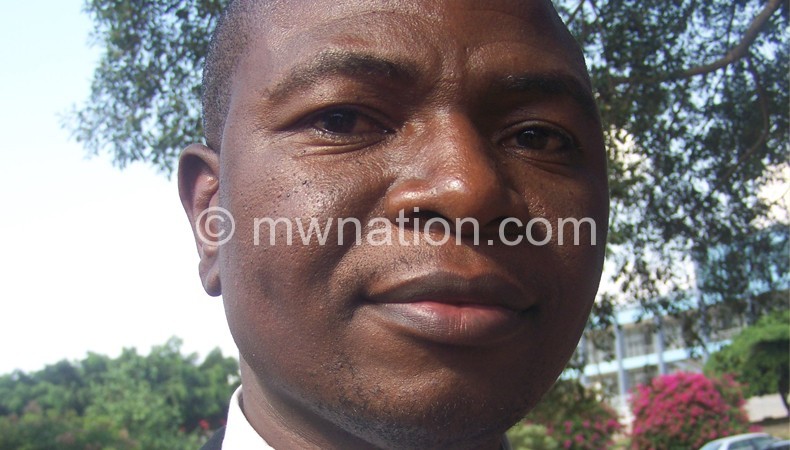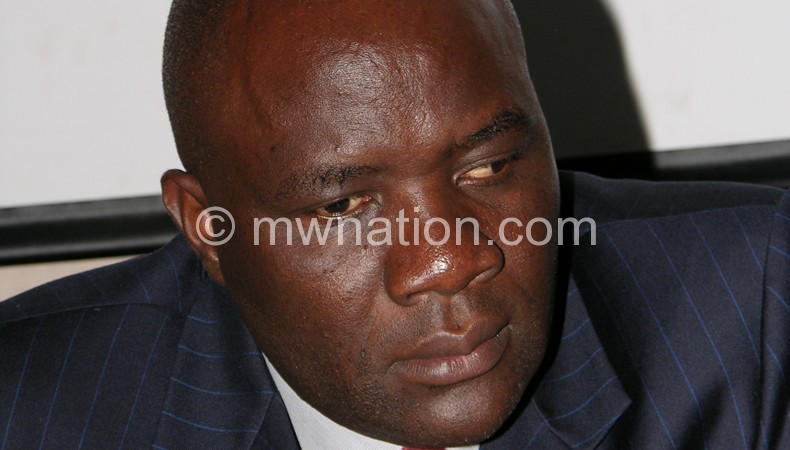Fear, uncertainty grip UDF MPs
Indecision, uncertainty, division and fear have gripped opposition United Democratic Front (UDF) members of Parliament (MPs) over the party’s decision to seek relocation to government benches in Parliament.
In a survey carried out by The Nation among UDF’s 13 MPs on their position regarding the party’s wish, two said they have no problems moving, one gave an outright ‘No’, three were undecided and five said they would follow the party’s position.

Two of the 14 legislators—Minister of Natural Resources, Energy and Mining Atupele Muluzi and Second Deputy Speaker of Parliament Clement Chiwaya—would not be affected by the move by virtue of their positions.
The Nation interviewed all remaining MPs, except one, to find out about their views on the matter.
Party secretary general Kandi Padambo wrote Speaker of Parliament Richard Msowoya, asking him to move its legislators to the government side in the House. The Speaker said he is consulting on the matter.

During the telephone interviews, it transpired that those deciding to follow party line were doing so out of fear of being expelled for breaching its directive.
Hard choices
“I am in Parliament at the mercy of the party because in my area, the people like the UDF. I have no choice, but to follow what the party decides, whether good or bad because if I am expelled, it means I am finished politically,” said one MP, adding that it is now a battle between conscience and loyalty.
Another MP shared the same sentiments, saying the political trend has been that once one is expelled from the party, chances of making it to Parliament in the next term are reduced.
The MP cited the example of former Malawi Congress Party (MCP) legislators who did not return to Parliament either after they were expelled or the party did not select them to be its candidates.
Said the MP: “So, we have a choice to make: either go by the wish of the party and be assured of returning to Parliament during the next general elections or go the opposite direction and be doomed politically.”
Another legislator who claimed to be undecided complained that the party is deliberately pushing matters without consultation with the grassroots.
NEC’s call
According to the MP, when the idea was hatched, the party’s national executive committee (NEC) members met and agreed that the MPs should relocate.
“Our NEC is composed of people who never travel to hold rallies or get views from the grassroots. This is the reason such decisions are made without consulting them. Have you wondered why the decision came from the secretary general and not from the party leader in the House?” He asked.
One MP who made it clear that he will not go to the government benches should circumstances not change accused the party of being disconnected to the members at grassroots by making unilateral decisions.
Said the MP: “My constituents [are] against the decision. I would rather follow what the constituents are saying than the party because they are the ones that voted me into Parliament.”
But UDF spokesperson Ken Ndanga said the decision to write the Speaker to relocate party MPs was done to enhance the working relationship with Democratic Progressive Party (DPP).
He could not respond to the MPs’ reservations on moving to government benches and the fear they have should they work against it, saying no one has come to complain.
On why the party made the decision without the blessings of the grassroots, Ndanga said: “It is not feasible and practical to consult each and every party member because they are many. As far as we are concerned, the party made the decision and that is it.”
Political analyst Mustafa Hussein noted that such disagreements between the UDF leadership and its legislators show the extent to which intra-party democracy is deficient.
However, Hussein warned that the party is at a crossroads where, if the decision is against grassroots opinion, it could result into its downfall, but if the grassroots are happy with it, then the party would benefit.
Something wrong
Another analyst, Blessings Chinsinga, also observed that when political parties decide on something without consultaion, it shows that something is wrong.
“When party leaders can make decisions on their own without the blessings of either their legislators or supporters, it shows that democracy is lacking within the party. This is a trend that needs to be checked,” said Chinsinga, an associate professor of political science at the University of Malawi’s Chancellor College in Zomba.
On his part, political scientist Joseph Chunga noted that alliances benefit political leaders and not parties as a whole.
Lessons from history
Party working relationships have never been good to the subordinate parties.
During the first multiparty elections in 1994, the Alliance for Democracy (Aford) scooped all seats in the Northern Region and some in the Centre. However, the party’s numbers in Parliament started to dwindle after the then party leader, the late Chakufwa Chihana, entered into alliance with the then governing UDF. Currently, Aford has only one MP in Parliament.
The Republican Party (RP) of Gwanda Chakuamba won 17 seats in Parliament during the 2004 general elections. But when it entered into alliance with the then governing UDF, RP failed to win any seat in 2009.
UDF came to power in 1994 after defeating MCP in the first multiparty elections. It swept seats in the Southern Region and most seats in the Central Region.
During the second multiparty elections in 1999, the party scooped 91 seats, but the figures continued to drop in the subsequent elections when it won 49 seats in 2004 and 16 seats in 2009.





